Dacia Duster vs Mercedes EQB – Differences & prices compared
Compare performance, boot space, consumption and price in one view.
Find out now: which car is the better choice for you – Dacia Duster or Mercedes EQB?
The Dacia Duster (SUV) comes with a LPG, Full Hybrid or Petrol MHEV engine and Manuel or Automatic transmission. In comparison, the Mercedes EQB (SUV) features a Electric engine with Automatic transmission.
When it comes to boot capacity, the Dacia Duster offers 517 L, while the Mercedes EQB provides 495 L – depending on how much space you need. If you’re looking for more power, decide whether the 140 HP of the Dacia Duster or the 292 HP of the Mercedes EQB suits your needs better.
In terms of consumption, the values are 5 L per 100 km for the Dacia Duster, and 15.20 kWh for the Mercedes EQB.
Price-wise, the Dacia Duster starts at 16300 £, while the Mercedes EQB is available from 45900 £. Compare all the details and find out which model fits your lifestyle best!
Dacia Duster
The Dacia Duster represents a compelling choice for those seeking an affordable yet robust SUV in the market. With its rugged design and practicality, it tackles both urban commutes and off-road adventures with ease. Inside, the vehicle offers a spacious cabin that ensures comfort, while maintaining its reputation for delivering excellent value for money.
details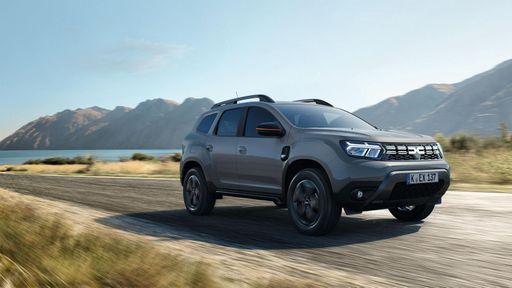 @ dacia-presse.de
@ dacia-presse.de
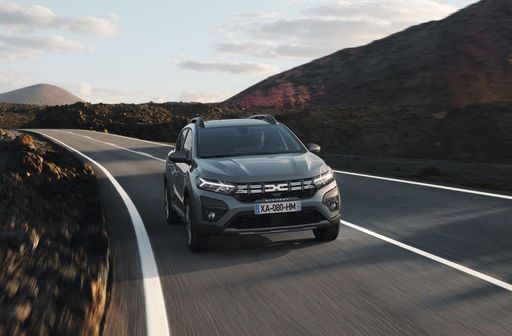 @ dacia-presse.de
@ dacia-presse.de
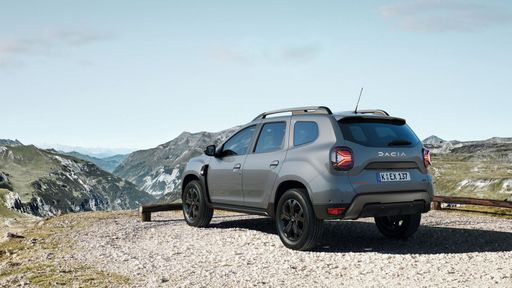 @ dacia-presse.de
@ dacia-presse.de
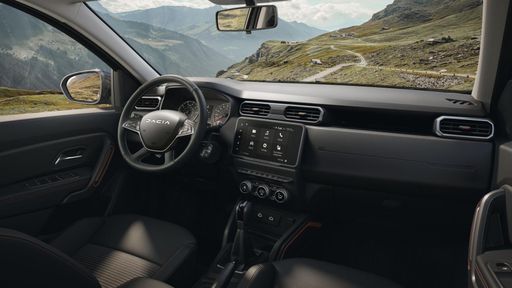 @ dacia-presse.de
@ dacia-presse.de
Mercedes EQB
The Mercedes-Benz EQB is an all-electric compact SUV that seamlessly blends practicality with modern luxury. Its sleek design and spacious interior make it an attractive option for families seeking both style and function. With advanced technology and impressive range capabilities, the EQB is a testament to Mercedes-Benz's commitment to sustainable mobility.
details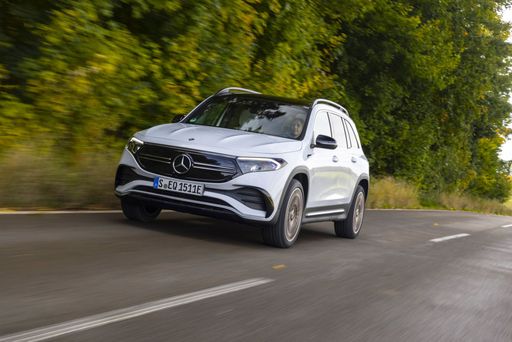 @ group-media.mercedes-benz.com
@ group-media.mercedes-benz.com
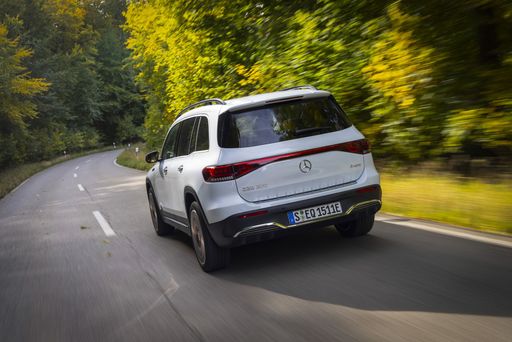 @ group-media.mercedes-benz.com
@ group-media.mercedes-benz.com
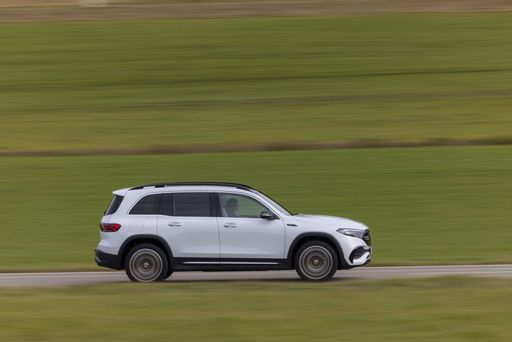 @ group-media.mercedes-benz.com
@ group-media.mercedes-benz.com
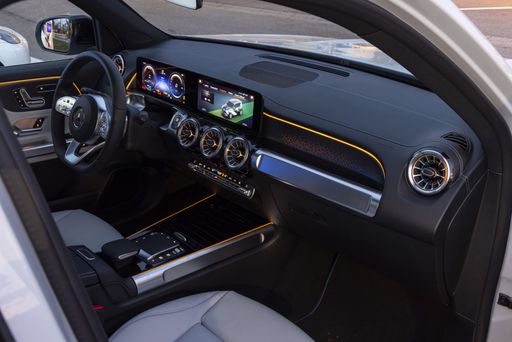 @ group-media.mercedes-benz.com
@ group-media.mercedes-benz.com
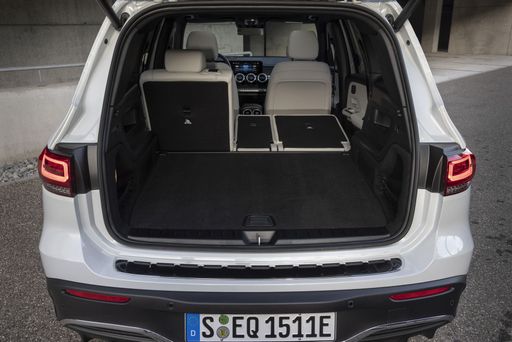 @ group-media.mercedes-benz.com
@ group-media.mercedes-benz.com

|

|
|
|
|
Costs and Consumption |
|
|---|---|
|
Price
16300 - 24800 £
|
Price
45900 - 58900 £
|
|
Consumption L/100km
5 - 8.1 L
|
Consumption L/100km
-
|
|
Consumption kWh/100km
-
|
Consumption kWh/100km
15.2 - 17.2 kWh
|
|
Electric Range
-
|
Electric Range
468 - 535 km
|
|
Battery Capacity
0.60 kWh
|
Battery Capacity
70.50 kWh
|
|
co2
114 - 147 g/km
|
co2
0 g/km
|
|
Fuel tank capacity
49 - 55 L
|
Fuel tank capacity
-
|
Dimensions and Body |
|
|---|---|
|
Body Type
SUV
|
Body Type
SUV
|
|
Seats
5
|
Seats
5
|
|
Doors
5
|
Doors
5
|
|
Curb weight
1351 - 1465 kg
|
Curb weight
2105 - 2170 kg
|
|
Trunk capacity
430 - 517 L
|
Trunk capacity
495 L
|
|
Length
4343 mm
|
Length
4684 mm
|
|
Width
1813 mm
|
Width
1834 mm
|
|
Height
1656 - 1661 mm
|
Height
1654 - 1689 mm
|
|
Payload
414 - 430 kg
|
Payload
435 kg
|
Engine and Performance |
|
|---|---|
|
Engine Type
LPG, Full Hybrid, Petrol MHEV
|
Engine Type
Electric
|
|
Transmission
Manuel, Automatic
|
Transmission
Automatic
|
|
Transmission Detail
Manual Gearbox, Automated Manual
|
Transmission Detail
Reduction Gearbox
|
|
Drive Type
Front-Wheel Drive, All-Wheel Drive
|
Drive Type
Front-Wheel Drive, All-Wheel Drive
|
|
Power HP
91 - 140 HP
|
Power HP
190 - 292 HP
|
|
Acceleration 0-100km/h
9.9 - 14 s
|
Acceleration 0-100km/h
6.2 - 8.9 s
|
|
Max Speed
160 - 180 km/h
|
Max Speed
160 km/h
|
|
Torque
160 - 230 Nm
|
Torque
385 - 520 Nm
|
|
Number of Cylinders
3 - 4
|
Number of Cylinders
-
|
|
Power kW
67 - 104 kW
|
Power kW
140 - 215 kW
|
|
Engine capacity
999 - 1598 cm3
|
Engine capacity
-
|
General |
|
|---|---|
|
Model Year
2024 - 2025
|
Model Year
2024 - 2025
|
|
CO2 Efficiency Class
D, C, E
|
CO2 Efficiency Class
A
|
|
Brand
Dacia
|
Brand
Mercedes-Benz
|
Dacia Duster
Discovering the Duster: Dacia's Affordable SUV
The Dacia Duster has long been a go-to choice for those seeking an affordable yet competent SUV. Known for its robust design and versatility, the new 2024 model year offers even more options to fit a variety of needs. Let's delve into the technical details and innovative aspects that set the Duster apart.
Engine Diversity: Tailoring to Your Needs
The Dacia Duster doesn't disappoint when it comes to engine variety. With options ranging from Gas and Voll-Hybrid to Benzin Mild-Hybrid, there's something for everyone. The engine power spans from 91 to 140 PS, providing levels of performance suited to different driving styles. Notably, the hybrid options are a nod to the growing demand for more eco-friendly vehicles while still maintaining affordability.
Efficiency and Performance in Harmony
Efficiency is a key highlight of the Duster lineup. Fuel consumption rates from 5 to 8.1 litres per 100 km make it a great choice for budget-conscious drivers. Coupled with acceleration times ranging from 9.9 to 14 seconds for 0-100 km/h, the Duster provides a balanced blend of economy and performance.
Precision in Design: Dimensions and Interior Space
The Dacia Duster stands at 4,343 mm in length, 1,813 mm in width, and height varies between 1,656 to 1,661 mm. These dimensions create an ample interior, comfortably seating five passengers with a boot capacity ranging from 430 to 517 litres. This is further enhanced with the different trim levels such as Essential, Expression, Extreme, and Journey, each offering various features.
Advanced Drivetrain Options
Dacia has always been keen on providing choice in drivetrain configurations to cater to a wider audience. The Duster is available with both front-wheel and all-wheel drive options, powered by either a manual or automatic transmission. This flexibility ensures that the Duster can handle both urban commutes and off-road adventures with equal competence.
Technical Specifications: A Deep Dive
The Dacia Duster is equipped with a variety of technical features that ensure a smooth driving experience. It features a range of torque outputs from 160 to 230 Nm, depending on the model. The vehicle's weight varies between 1,351 and 1,465 kg, which aids in its adept handling and stability. Moreover, the Duster meets modern safety expectations with CO2 emissions ranging from 114 to 147 g/km. The SUV's CO2-Effizienzklasse spans from D to E, reflecting its environmental considerations.
Conclusion: A Solid Choice in the SUV Market
The Dacia Duster remains a solid choice for drivers seeking an SUV that combines affordability, efficiency, and versatility. With its wide range of configurations and technical prowess, it continues to be a competitive player in the SUV segment. Whether you're after fuel efficiency, a bit more power, or the capability of off-road adventures, the Duster has you covered.
Mercedes EQB
Introducing the Mercedes-Benz EQB: A New Era in Electric SUVs
The Mercedes-Benz EQB is a striking testament to the innovative prowess of Mercedes-Benz in the realm of electric vehicles. As an SUV designed for the future, the EQB merges luxury with sustainability, offering a remarkable driving experience complemented by state-of-the-art technology.
Powerful Performance and Efficient Design
Under the bonnet, the EQB is powered by an electric motor that produces between 190 to 292 PS, translating to 140 to 215 kW. This powerful engine allows the EQB to achieve a 0-100 km/h acceleration in just 6.2 to 8.9 seconds, rivaling many other vehicles in its class.
Fuel efficiency remains at the forefront of the EQB's design, with a consumption rate ranging from 15.2 to 17.3 kWh per 100 km. This efficiency ensures the vehicle maintains an impressive electric range between 445 to 533 km per charge, giving drivers the confidence to embark on longer journeys without constant recharging.
Cutting-Edge Technological Innovations
The EQB is packed with innovations that make driving an intuitive and seamless experience. The vehicle boasts a state-of-the-art emissions rating of zero CO2 per km, proudly placing it in the A class of CO2 efficiency. The integrated automatic transmission, specifically the Reduktionsgetriebe, offers smooth transitions and enhances overall driving comfort.
Roomy Interior and Premium Features
Step inside the EQB to find a spacious and luxurious interior, capable of accommodating five passengers comfortably. With a luggage capacity of 495 litres, this SUV caters to both adventure and everyday needs. The EQB comes available in several exquisite lines, including AMG Line Advanced and Electric Art Advanced Plus, ensuring there's a version to match every style preference.
Safety and Reliability
Safety has always been a priority for Mercedes-Benz, and the EQB continues this legacy. With an all-wheel-drive option on certain models, enhanced traction and stability are provided across a variety of driving conditions. Furthermore, the EQB's substantial weight range from 2105 to 2170 kg adds to its robust and stable feel on the road.
Pricing and Ownership Costs
The price of the EQB starts at €53,514, and the top-end models can go up to €68,734. Mercedes-Benz offers several financing options to suit various budgets, with running costs calculated at approximately 47.4 to 55.9 cents per kilometre, making it an economically viable choice for the environmentally conscious driver.
The Mercedes-Benz EQB is more than just a vehicle; it represents a shift towards a more sustainable future, without compromising on luxury or performance. Whether you're navigating city streets or venturing into the countryside, the EQB is engineered to deliver an exceptional driving experience every time.
Which drive types are available for the Dacia Duster?
Available as Front-Wheel Drive or All-Wheel Drive.
The prices and data displayed are estimates based on German list prices and may vary by country. This information is not legally binding.
